How to plant a perennial summer border
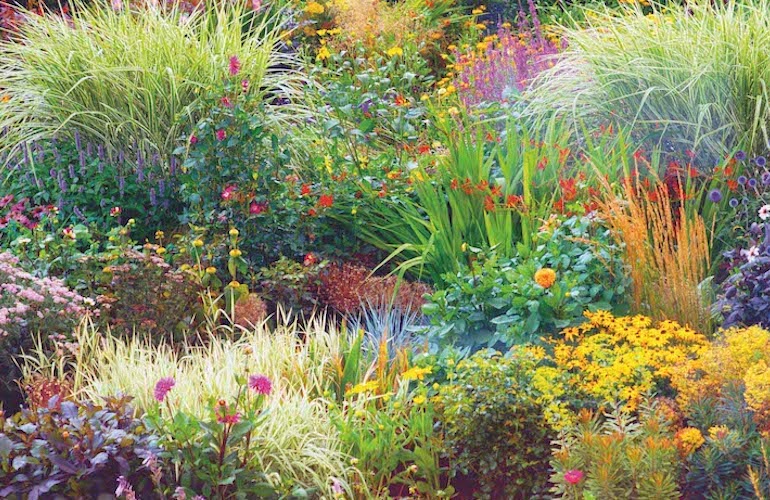
Perennial borders add striking colour to your garden year after year
Image: Nurserymans choice seasonal perennial border from Thompson & Morgan
Hardy herbaceous perennial & biennial plants create a dazzling display in summer that will only get bigger and better over time. And planting a perennial border is a simple way to get excellent value for money. With a little planning, you can design a scheme filled with height, colour and scent that bursts into life year after year. Check out our video and top tips on how to plant the perfect perennial border.
How do I design a perennial border?
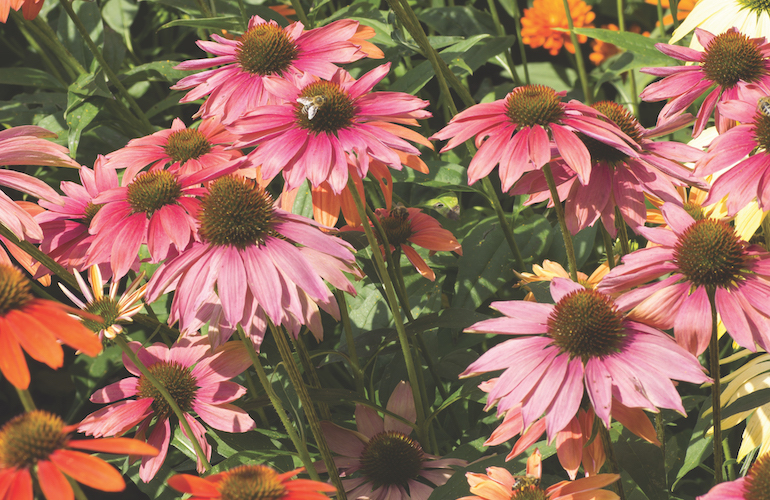
Echinacea is the perfect border perennial because of its bright nectar rich flowers
Image: Echinacea purpurea 'Primadonna Mixed' from Thompson & Morgan
When planning your own perennial border, first consider the planting conditions. If your border receives full sun throughout the day, then you’ll need to fill it with plants that like hot, dry conditions like lavender ‘Munstead’ and Verbena bonariensis. If your border is very shady, then you’ll need shade tolerant plants like heuchera ‘Mosaic’.
After establishing which types of perennials are best suited to your space, draw up a rough plan with pencil and paper. Think about plant heights and breadths, and how they’ll complement each other when growing side by side. Plan to grow your ground cover and shorter plants at the front of the bed, and tall perennials at the back. This is more important if you have a deep bed, to ensure that you can see and enjoy the whole planting scheme. Try to make space for some scented perennials too.
How do I prepare my border to plant perennials?
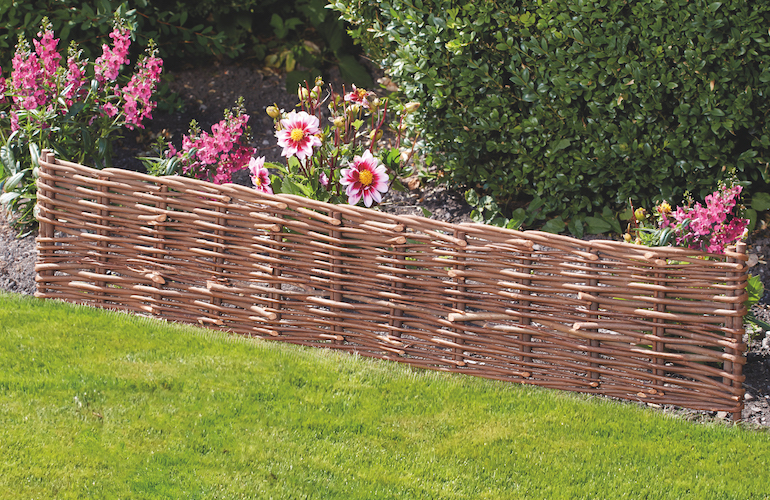
Woven willow border edging protects small plants from wind and keeps things tidy
Image: Garden life woven willow border edging from Thompson & Morgan
Prepare your border by digging some well-rotted manure or organic matter through the soil to improve fertility and drainage. Now’s the time to tidy your border edges, before your plants get in the way. Cut the edges using a sharp spade and install special lawn edging to keep your garden looking smart throughout the summer.
Which perennials should I plant?
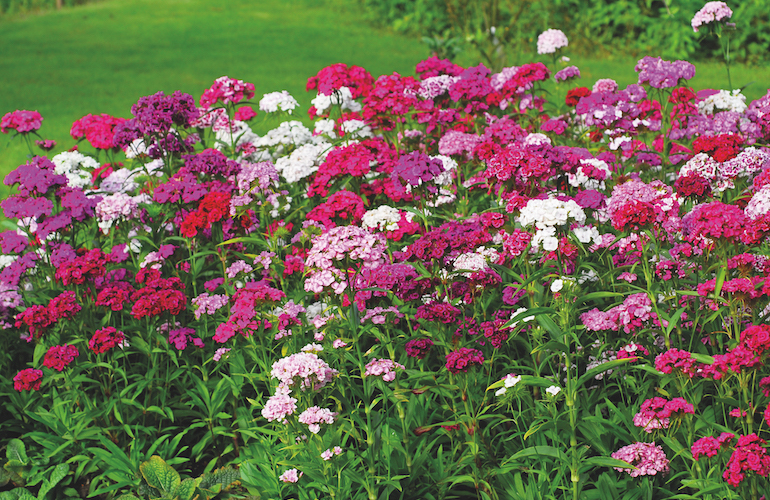
Plant the same varieties in groups of three or more for maximum colour impact
Image: Dianthus barbatus 'Mixed' from Thompson & Morgan
If you know what sort of soil you have, it helps you find the plants that will really thrive in your new border. Test your soil with a pH tester kit to find out. If it’s alkali (with a pH between 7 and 14) choose plants like Campanula persicifolia ‘Telham Beauty’ and hardy Geranium himalayense. If your garden soil is acidic (with a pH between 1 and 7) then choose plants like hydrangea and japanese anemone ‘Honorine Jobert’.
Select plants with a good mix of heights to put in your border. You'll need some taller perennial plants like foxglove ‘Excelsior Hybrids’, that can be positioned towards the back. Place lower growing ground cover perennial plants like Dianthus barbatus ‘Rocking Red’ at the front. In between, you can plant mid-height perennials like Scabious ‘Blue Jeans’ and Penstemon barbatus ‘Twizzle’. This gives the border a nice structure and ensures that everything is visible.
How should I plant up my perennial border?
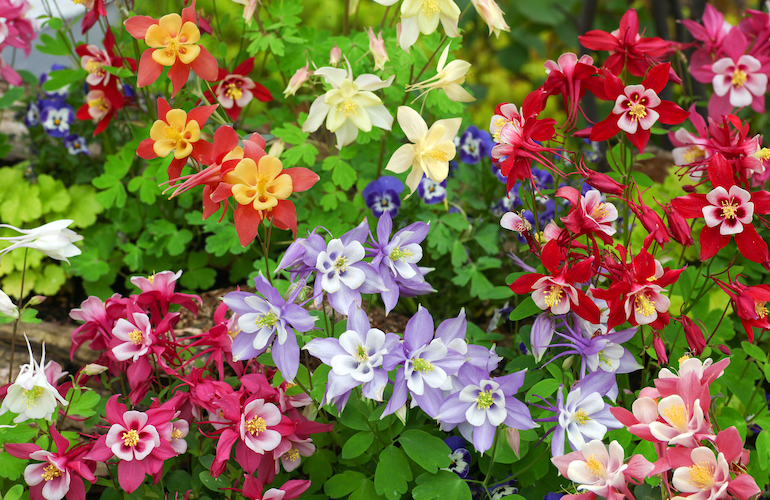
Aquilegia are prolific flowering plants that look stunning in the border
Image: Aquilegia caerulea 'Mrs Scott-Elliott' from Thompson & Morgan
While your plants are still in their pots, arrange them on the soil to work out where you want each to go. Try to group threes and fives of the same plant for a stronger visual effect. Repeating these groups throughout the border will help to give it a sense of symmetry and cohesiveness. Remember to give your plants plenty of space to mature without crowding each other.
Remove your plants from their pots and loosen up the root ball by gently massaging the compacted soil. Place the plant into the planting hole up to the base of the stem, at the same depth that the plant was in the pot. Water your freshly planted perennials in after planting, and remember to keep watering them during dry spells until they become more established. Adding a mulch around the base of your new plants will also improve water retention through the growing season.
Step-by-step video: how to plant a perennial border
Watch as T&M’s horticultural expert Sue Sanderson shows you how to plant up a perennial border in full sun using a gorgeous mix of hardy perennial plants.
We hope we’ve inspired you to create a striking new perennial border, and enjoy easy colour and interest year after year. If you’re looking for specific geranium growing information, visit our geraniums hub page for links to more tips and advice. Share your perennial border with us using the hashtag #YourTMGarden on Instagram or find us on Facebook.
Sign Up For Exclusive Special Offers




© 2024 Thompson & Morgan. All rights reserved. A division of Branded Garden Products Limited.
Sign up for exclusive offers!



